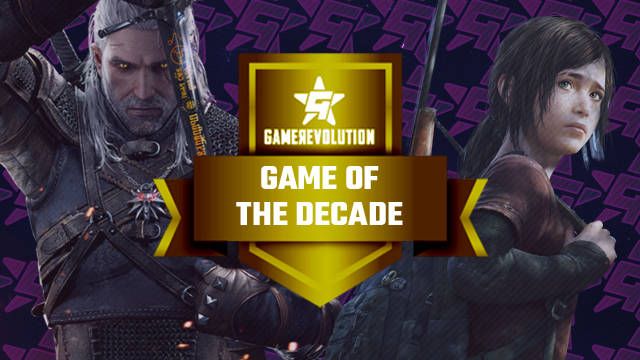The past decade was a transformative period of time for video games. From 2010–2019, we saw the industry make the leap to 4K gaming, the rise of virtual reality, the debut of game streaming and subscription services, along with shifts to brand new console generations for Sony, Microsoft, and Nintendo. PC gaming has become better than ever, the Switch somehow lets us play The Witcher 3 on the train, and we’ve witnessed the rise and subsequent death of 3D TVs. A lot has happened!
ALSO: Top 20 most anticipated games of 2020
To celebrate the past decade, we asked Game Revolution’s readers to vote on their favorite game released between 2010–19. We shortlisted 50 of the most well-received games from this time period, and you voted in your droves to select our Game of the Decade. The results were very close, but we’ve finalized a winner after counting up your selections.
Here are the Top 10 Games of the Decade:
10. Minecraft
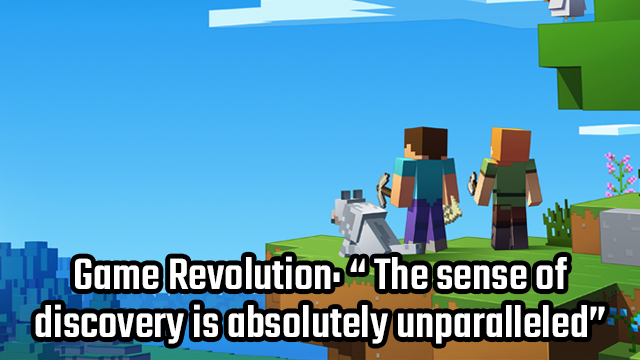
The best-selling video game ever, Minecraft has remained enduringly popular since its 2011 release.
Created by Markus “Notch” Persson, Minecraft began as a clone of the open-source sandbox game Infiniminer, but eventually took on a life of its own. Now it’s been released on most platforms, with it somehow overtaking Fortnite in popularity last year after a renewed interest from YouTubers and Twitch streamers.
No other game quite managed to scratch our creative itch like Minecraft. It’s timeless, and while it may not have topped this list, it’s arguably the only game that everyone will still be playing well into the next decade.
9. The Legend of Zelda: Breath of the Wild
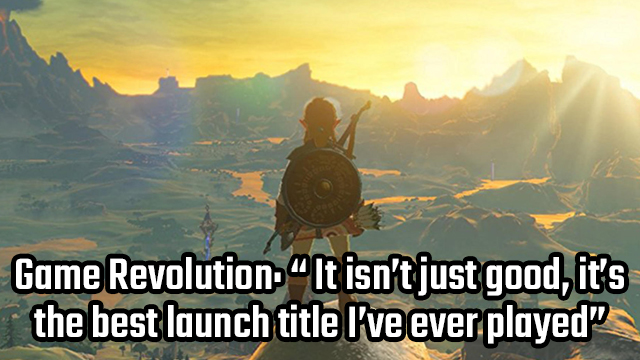
After the disappointment of the Wii U, Nintendo needed a killer game to sell the Switch at launch. The Legend of Zelda: Breath of the Wild did just that.
Breath of the Wild‘s open-world Hyrule was the real star of the show, providing endlessly inventive ways for players to traverse it. Nintendo rewarded your curiosity at every turn, from allowing you to cross a ravine by chopping down a nearby tree and walking across it, to using your Sheikah Slate abilities to fling Link across the map while he desperately clung to a box. Its dungeons were no different, presenting challenging logic puzzles that required players to solve them using all the tools at their disposal.
No one was expecting Nintendo to create one of the best survival games ever, but Breath of the Wild completely subverted expectations and provided us with one of the legendary developer’s most imaginative games ever. Considering Nintendo’s history, that’s no small statement.
8. God of War (2018)
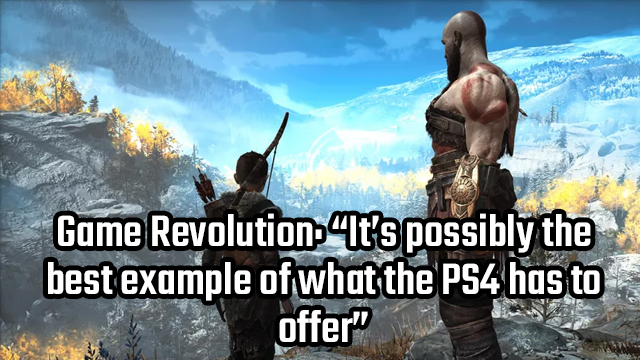
“BOY.”
Sony’s Santa Monica Studio reinvented Kratos with its take on God of War, transforming the anti-hero into a father struggling to come to terms with his violent past. Taking the Ghost of Sparta from Greek mythology to Norse, Santa Monica explored a brand new fantastical world but managed to keep its story intimate, focusing on Kratos and his son Atreus’ relationship.
This was echoed by its combat, with its over-the-shoulder camera lending itself to more visceral and intense action despite scaling things back. Kratos wasn’t killing dozens of enemies in one fell swoop, but its battles felt much more impactful, aided by the wonderfully satisfying Leviathan axe.
We can’t wait to see where Santa Monica goes with God of War in the future, with its first take on Kratos leaving the door wide open for many more stories to be told in this world.
7. Red Dead Redemption 2
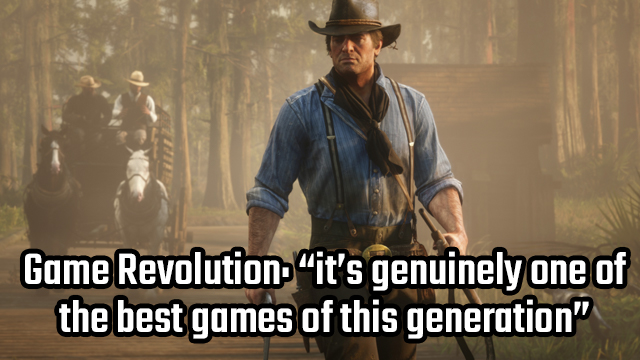
Red Dead Redemption 2 was a lot. Rockstar went from an OTT, slapstick portrayal of modern America with Grand Theft Auto 5 to a methodical, slow-paced exploration of the American frontier with RDR2. The meticulous level of detail that went into RDR2 provided one of the most immersive game worlds to date, as protagonist Arthur Morgan came to terms with the decline of the U.S. outlaw across its lengthy campaign.
RDR2 was critically acclaimed though divisive at launch, with many finding Rockstar’s uncompromising vision to be a chore. The often glacial pace at which this prequel moved was at odds with what we’ve come to expect from Rockstar, but as the Van der Linde gang’s story reached its conclusion, those who stuck it through to the end experienced one of the most impressive feats of this generation.
6. Dark Souls
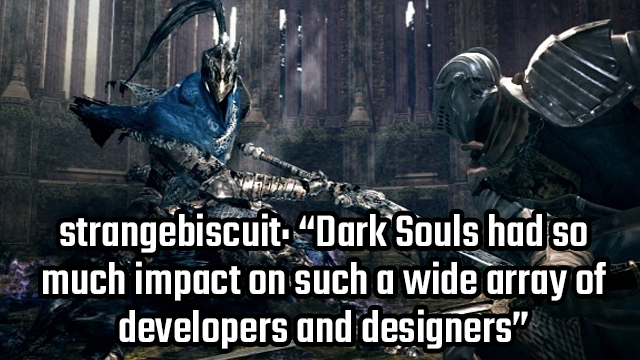
Arguably the most influential game of the decade, Dark Souls sent reverberations across the industry that are still being felt nine years later. Released during a time when developers were easing up on their players, From Software ushered in a new era of ultra-challenging games that outright refused to hold hands.
Dark Souls wasn’t the first From game to use the developer’s now-infamous formula — for many, Demon’s Souls remains the studio’s best work — but it was certainly the most impactful. Dark Souls‘ combination of brutal combat, gargantuan enemies, and interesting lore would not only catapult From Software into the upper echelon of modern game developers, but it created a path for other studios to create uncompromisingly challenging games, too.
5. Grand Theft Auto 5
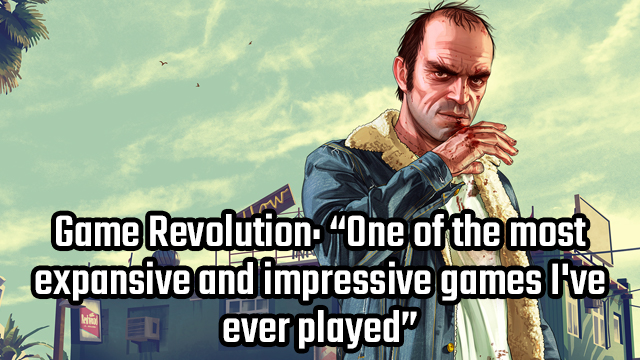
Grand Theft Auto 5 was the biggest blockbuster release of the decade. So ridiculously successful that Rockstar could just keep working on it for an entire console generation, GTA5 is the best example of a live service game to date.
While GTA Online and its bank-rolling microtransactions may have set a number of unfortunate industry standards, there’s no denying its impact on the wider industry. While GTA5‘s single-player campaign may have been an off-the-wall exploration of the ill-fated American Dream, GTA Online reveled in consumption and provided players with endless incentives to Just. Keep. Playing.
For better and for worse, GTA5 represents the pinnacle of what publishers want to achieve with their live service games. That it still sells by the truckload to this day is indicative of just how much fun Rockstar packed into this thing.
4. Mass Effect 2
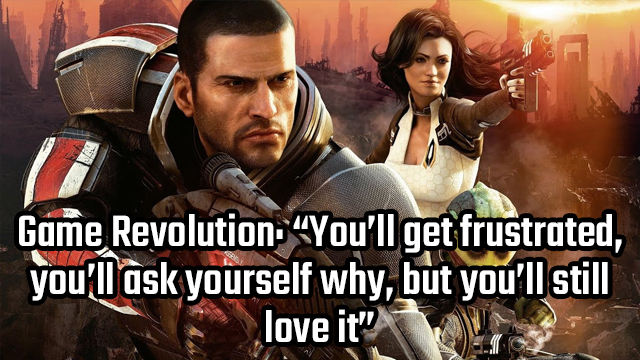
Mass Effect 2 was the ideal sequel. BioWare’s sci-fi RPG took what players loved about the first game, trimmed away most of the bad bits, and delivered on the original’s promise in spades. This is how you turn a great new IP into a franchise, and while Mass Effect ultimately may have disappointed with its concluding chapter and the underwhelming Andromeda, that doesn’t sully our memory of the series’ fantastic second entry.
Ultimately, we all want to go on a big ol’ space adventure. As Commander Shepard, BioWare allowed players to live out their own sci-fi fantasies and make their own choices. Choosing which aliens to shoot and which ones to romance kept players gripped, allowing us to embark on our own story in its sprawling universe.
3. The Elder Scrolls V: Skyrim
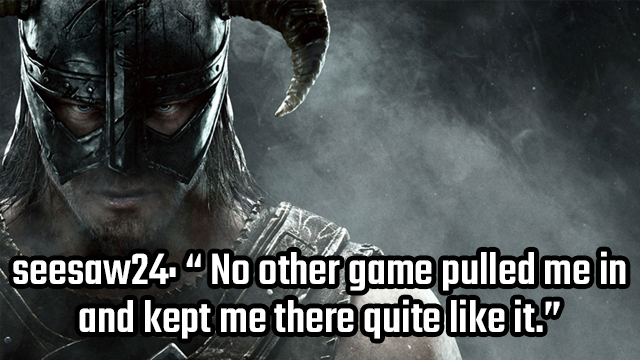
Skyrim is inescapable. Released on basically every platform with re-releases basically every year, there’s an incredibly slim chance that you haven’t played Skyrim yet. It’s omnipresent, like a god but one that only requires a one-off purchase to worship it.
So why is Skyrim so enduringly popular? For many, it’s the benchmark for open-world RPGs. Stuffed with things to do, Skyrim encourages you to get side-tracked at every turn. The vanilla game is so deep in so many areas, you can get lost in a myriad of ways. Want to spend your time clearing out a castle full of enemies with your strange magical powers? You can certainly do that. Want to go and pester some terrifying giants for no discernible reason? You can do that, too. We’ve probably seen the opening to Skyrim more than any other game, and each time we know that the journey ahead of us is going to be wildly different from last time.
This is without even mentioning the effort its community has put into it, with Skyrim‘s mods being some of the most impressive ever released for a game. There are the usual texture packs, keeping the game looking up to date years after its release, and then there are the oddball additions like being able to turn its dragons into Thomas the Tank Engine or ‘Macho Man’ Randy Savage. It’s The Lord of the Rings combined with a toybox, and is just as much fun as that sounds.
2. The Last of Us
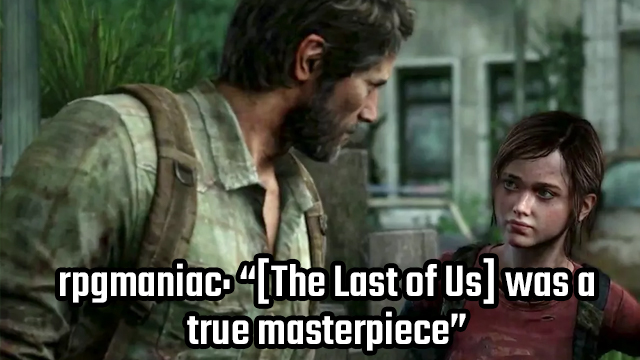
The Last of Us raised the bar for story-driven games. Released during a period of time when every developer and their mother was trying to push out “cinematic experiences,” The Last of Us presented a gripping post-apocalyptic narrative without forgetting to put an engrossing game in there, too.
TLoU‘s unflinchingly violent world made for intense combat, with players having to keep their wits about them if they didn’t want to succumb to the undead clickers or violent survivors that roamed its world. Taking on these enemies made for bloody gunfights and visceral melee action, turning up the realism for uncomfortably brutal encounters.
This was contrasted by Joel and Ellie’s sensitive, often sweet relationship, as Joel uneasily learned to accept another child under his own after the untimely passing of his own, while Ellie looked to him as a reluctant father figure. It all ends tragically, of course, though not in the way we expected, as Naughty Dog continued to surprise us right until the very end.
1. The Witcher 3: Wild Hunt
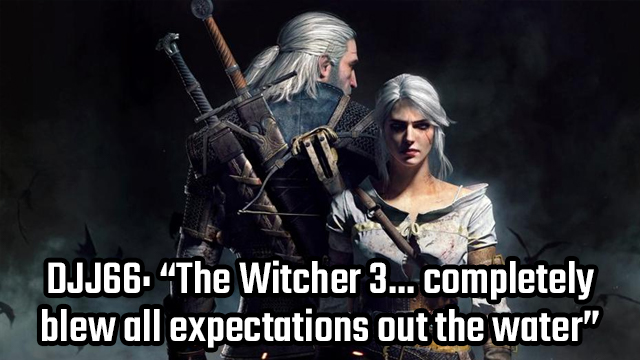
Now this is how you end a trilogy.
The Witcher 3: Wild Hunt is Game Revolution’s reader-voted Game of the Decade, and it’s not difficult to see why. Geralt’s story came to a satisfying conclusion in CD Projekt Red’s RPG, offering an expansive open-world environment that begged you to explore each of its nooks and crannies.
The Witcher 3 provided rewards at each turn for the curious, but it was how it presented those rewards that made its world so special. Antithetical to most open-world games, The Witcher 3 didn’t just give you some nice new loot when you explored a new location; it allowed you to learn more about its world and the inhabitants within it. Clambering off your horse and digging through its forests and villages, you could find yourself on a whole new adventure outside of its main story, learning about why so-and-so hated what’s-his-face and how Geralt of Rivia factored into all of this.
This deep roleplaying combined with its satisfying combat, which made you feel like a certifiable badass once you had mastered its real-time sword-fighting, made for one of the best RPGs ever — and, more importantly, Game Revolution’s Game of the Decade.
